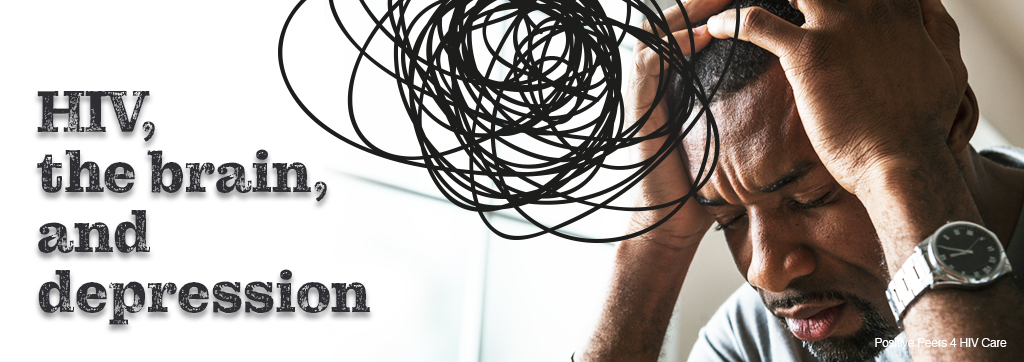
By: Ann K. Avery, MD, Infectious Disease Physician at MetroHealth Medical Center
You’ve probably heard of depression before, but it can get a little confusing. Depression is a syndrome, which is a bunch of symptoms that make up a condition, and they can look different for different people. Some of the symptoms that make up depression are low self-esteem, feeling sad much of the time, and losing pleasure in things you used to love.
Another thing that’s common in people with depression is finding it hard to do everyday activities. Most people have these feelings at some point in their life, but depression is different. Depression is having many of these symptoms persistently, every day, for weeks or longer.
If you’re living with HIV, you probably have a lot going on in your life that may make you feel depressed or anxious. It may even seem like a lot of people you know also living with HIV are depressed too. Sadly, there’s a reason for that. People with HIV are more likely to have a mental health disorder than people without HIV. Roughly half of everyone with HIV goes through depression at some point, and if you suffer from substance abuse, the chances are even higher.
Always tell your doctor if you have a history of depression. It will help you in the long run.
We’re going to dive into the reasons why folks living with HIV are more likely to have depression. If you have this info, it can help you take care of your mental health.
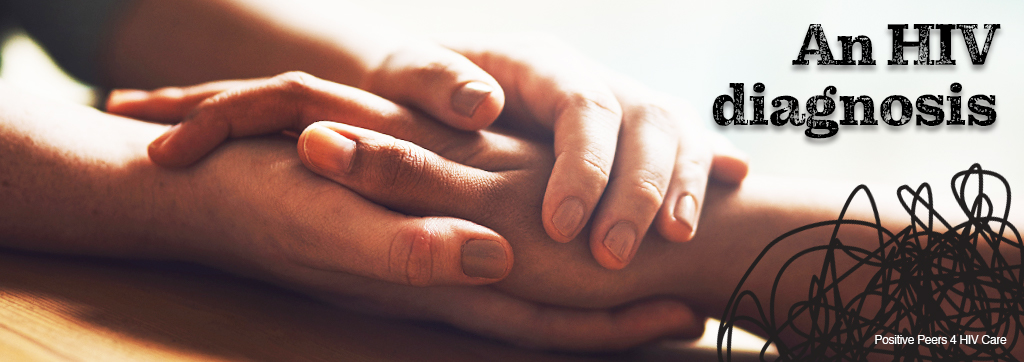
An HIV diagnosis can change your life in an instant
Life can be really hard. This can be especially true right after you find out you’re living with HIV. It can feel like everything about yourself and your life changed in an instant, and it’s tough to deal with. It’s pretty common for someone to experience depression after getting diagnosed with HIV.
It is normal to have an adjustment period after you find out the life-changing information that you have a chronic illness. This can become problematic if feeling down, sad, scared, or anxious doesn’t lessen or go away in a few weeks. Sometimes it can be hard to know when to ask for help. Here are some depression symptoms to look out for that might mean it’s time to talk to your healthcare provider:
- Having a depressed mood or feeling off for over a few weeks
- Losing interest in things you love (this is called anhedonia and is the most common depression symptom after depressed mood)
- Feeling a lot of guilt or shame
- Having suicidal thoughts
- Problems concentrating on things
- Changes in your appetite in weight
- Feeling agitated all the time
- Changes in your sleep patterns
- Loss of sex drive
- Lack of concentration
- Loss of energy
When you see your doctor, make sure they carry out a mental health assessment. It can help to determine if you’ve been dealing with depression and didn’t even know it. There are many options to help people with depression, ranging from self-management activities to counseling to taking medication. You and your doctor and other healthcare staff can decide what options are right for you.
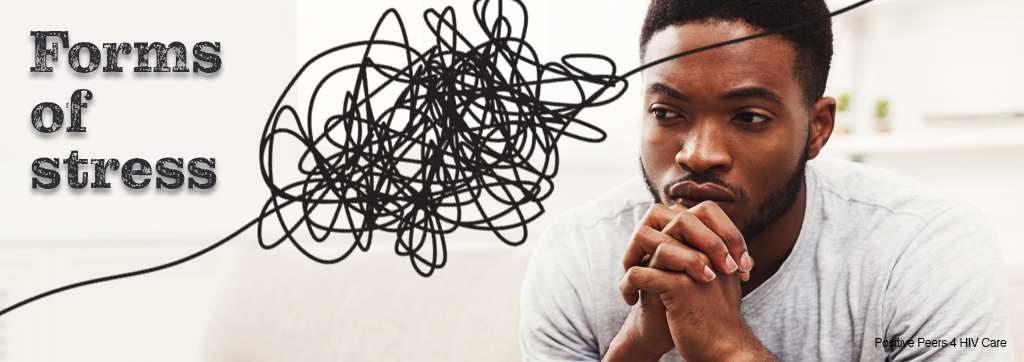
Outside stress can create inside stress and depression
Many different things in your life can feel stressful and sometimes contribute to depression. One issue is people having a rough time trying to get the services and care they need. Another issue is telling loved ones that you’re HIV-positive which can also be incredibly difficult to do.
There’s still a lot of misinformation about HIV, and it can cause some people to lose their support system. When you add in the stigma and the discrimination people living with HIV face, it’s not surprising depression is so common.
Come join our private, stigma-free, supportive community.
Health management tools with medication & appointment reminders.
Social networking in a community conversation & private chats.
If HIV has progressed to AIDS, it can really affect your mood
Opportunistic infections (OIs) are infections that happen in people with severely compromised immune systems (when the t-cell count goes below 200). Advanced symptomatic HIV disease and OIs both can produce depression symptoms. The underlying problem—the OI or HIV—should be diagnosed and treated first, or at the same time, if possible.
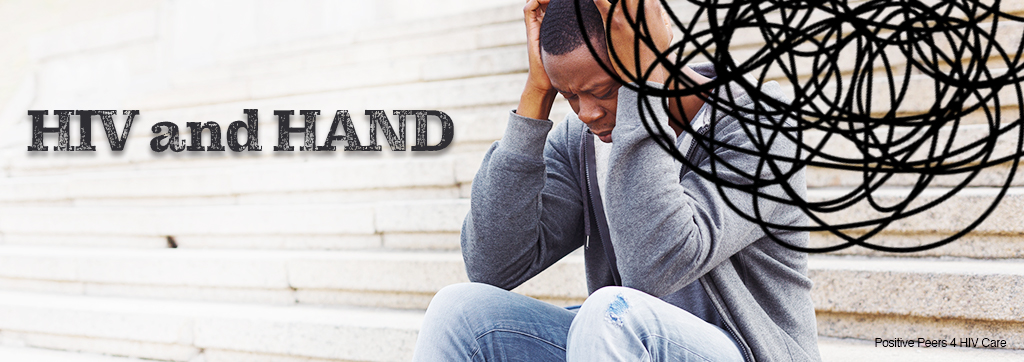
HIV and HAND
You may have heard of HAND, which stands for HIV-Associated Neurocognitive Disorder. Some people living with HIV can experience changes in their behavior and mood and end up having a decline in brain function and movement skills, like balance. This is all a part of HAND.
Having antiretroviral therapy helps make HAND a lot less severe for many people, but somewhere between 30 and 50 percent of people still have symptoms.
A lot of HIV and AIDS-related infections have just a few symptoms, but HAND is different. HAND symptoms have three different categories. They are:
- Cognitive issues: Such as memory loss, having trouble concentrating, and loss of humor.
- Motor issues: Some motor problems are dropping things a lot, having weakness in your legs, and losing control of your bladder and bowels.
- Behavioral issues: These might include personality changes, paranoia, mood swings, and loss of your inhibitions.
Ask your loved ones to pay attention and see if you’re developing some of these symptoms. It’s important to talk to your doctor about HAND and how you can manage it.
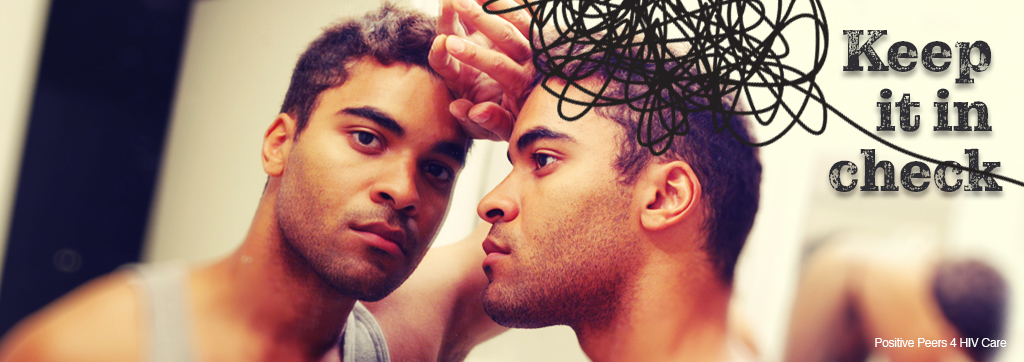
Keep depression in check
We know we threw a lot of info at you all at once. It’s okay to take some time to process it. However, depression and HIV are very serious and something you need to know about to take care of yourself the best way possible.
Getting enough physical exercise, cutting back on alcohol and substances, and treating depression and anxiety, are just a few steps you can take to keep your brain healthy and keep depression in check.
Related Blogs:


